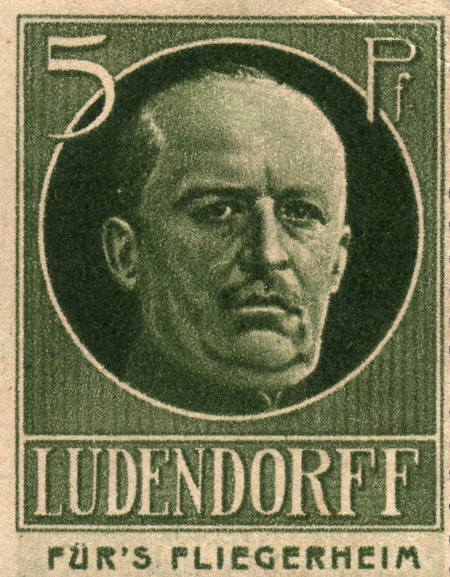People of WWI |
| The Archduke Ferdinand |
| Kaiser Wilhelm II |
| Vladimir Lenin |
| David Lloyd George |
| Georges Clemenceau |
| Eric Ludendorff |
| Sir Douglas Haig |
| Ferdinand Foch |
| Woodrow Wilson |
| John J. Pershing |

Erich Friedrich Wilhelm Ludendorff was a prominent German general and military strategist who played a crucial role in World War I. Known for his tactical brilliance and organizational skills, Ludendorff rose to prominence as one of Germany's top military leaders during the war. I
Early Life and Military Career
Erich Ludendorff was born on April 9, 1865, in Kruszewnia, near Posen (now in Poland). Ludendorff attended the Prussian Cadet Corps and later the War Academy, where he honed his military skills and developed a deep understanding of strategy and tactics.
Military Reforms and Staff Officer
During his early years in the military, Ludendorff focused on military reforms and efficiency. He worked as a staff officer and became known for his attention to detail and ability to streamline operations. Ludendorff's dedication to modernizing the German military earned him recognition and set the stage for his future achievements.
World War I
Ludendorff's career reached its zenith during World War I. In 1914, he served as Chief of Staff to General Paul von Hindenburg in the Eastern Front, where they achieved significant victories against the Russian forces. The dynamic duo of Hindenburg and Ludendorff became known for their strategic prowess, particularly in the Battle of Tannenberg and the Battle of the Masurian Lakes.
Appointment as First Quartermaster General
In 1916, Ludendorff was appointed as the First Quartermaster General, effectively becoming the chief strategist and operational planner for the German military. In this role, he exerted immense influence over Germany's war efforts. Ludendorff focused on centralized control and implemented a total war strategy, mobilizing the entire German society for the war effort.
The Spring Offensive and Final Years of the War
Ludendorff's most ambitious military undertaking was the Spring Offensive of 1918. The offensive aimed to deliver a decisive blow to the Allies and break the stalemate on the Western Front. While initially successful, the offensive eventually stalled, and Germany faced increasing pressure from the Allies. As the war drew to a close, Ludendorff recognized the futility of the German position and recommended seeking an armistice.
Legacy and Later Life
Following Germany's defeat in World War I, Ludendorff became a vocal critic of the Treaty of Versailles, which he viewed as unjust and overly harsh. He participated in right-wing political movements, including the failed Beer Hall Putsch led by Adolf Hitler in 1923. However, Ludendorff distanced himself from Hitler and the Nazi Party, criticizing their ideology and policies.
Ludendorff's later years were marked by controversy and disillusionment. He wrote extensively about his experiences in World War I and became known for his revisionist views on the causes of Germany's defeat. Erich von Ludendorff passed away on December 20, 1937, in Munich, Germany.